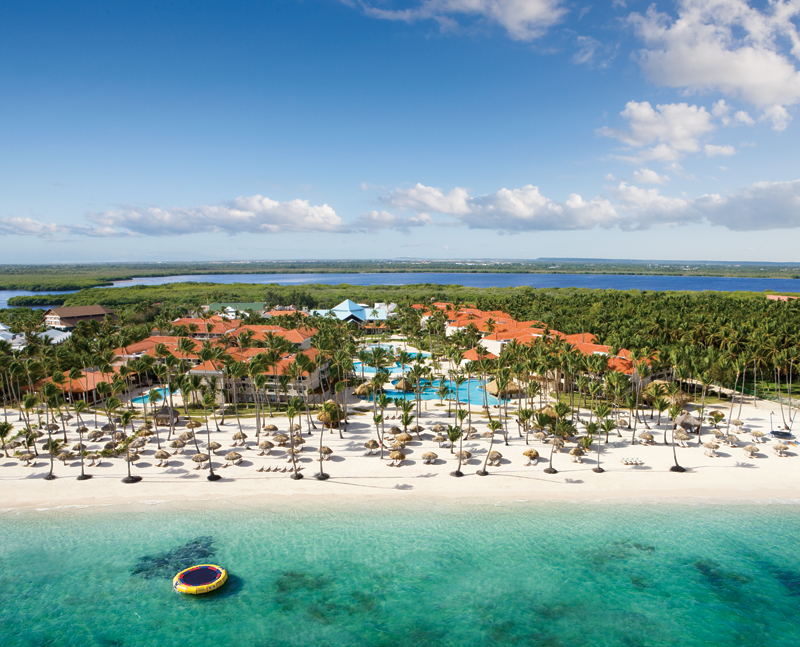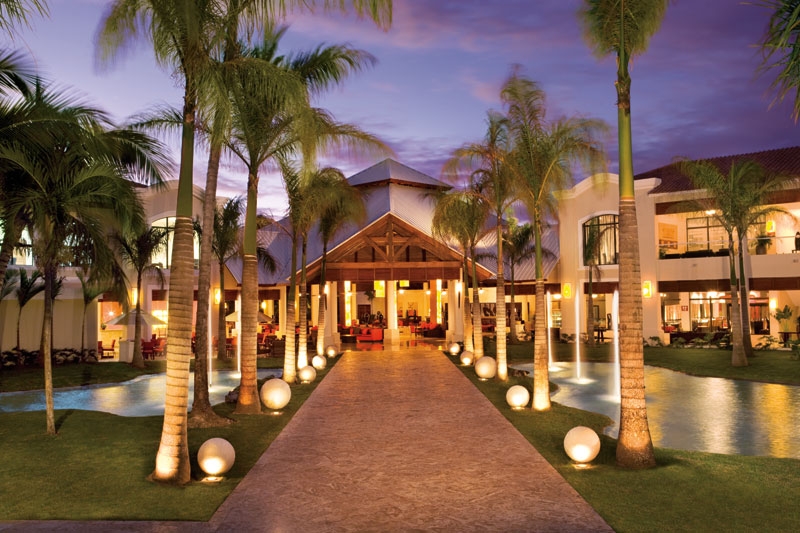Philadelphia-based Apple Leisure Group has been growing consistently over the last several years, and has several new developments in its pipeline to show for it. After signing an “unprecedented number” of deals in 2015, the company signed 10 resort deals over the first 10 months of the year, growing the company’s resort brand management portfolio by 15 percent.
ALG, which includes AMResorts, Apple Vacations and Amstar DMC, currently has 46 hotels open with more than 17,000 rooms. Heading it all is Alex Zozaya, who founded AMResorts in 2001, and is now CEO of the parent company.
He is bullish on the company's prospects for growth, noting the 13 resorts ALG currently has under development. Zozaya told HOTEL MANAGEMENT that within the next 15 months, the company hopes to have a full 23,000 rooms open, and is aiming to have 65 resorts across Mexico, the Caribbean, Costa Rica and Panama by 2019, and its 100th resort signed by 2020.
“We should see growth in the hotel company—both in size and in the quality of the product. We should see evolution. We’re committed to being ahead of the game,” he confidently pronounced.

New Destinations
As it plans its next steps, ALG is eyeing some key destinations for growth. “We look for common attributes in terms of beauty and weather and accessibility for the U.S. market,” Zozaya said.
For example, Colombia’s midscale and upscale hotel scene is booming, with brands like W Hotels, Four Seasons and La Quinta gaining footholds in recent years. “Cartagena is one of the nicest cities in the world,” Zozaya said, noting that the coastal city is largely known to the U.S. market. "It’s very attractive for many reasons. It’s beautiful, and it offers more than just a beach. It’s a real colonial city.
"It also has good financing options now to build hotels there, and the people are educated and friendly and flexible. Cartagena is a good opportunity for us. There’s not a lot of competition in our space, and demand is on the rise—not just from the U.S., but regional markets where we have a strong presence.”
Aruba is also a hot spot for development, Zozaya said, thanks to its safety, connectivity and existing appeal for the U.S. market. “It commands a premium for the brand,” he said. “Americans are willing to pay a premium, and hotels there offer a good rate of return. We have a project in progress in Aruba—a Zoetry—and we believe there is room and opportunity for us to grow much bigger in the hotel side.”
In April, AMResorts announced plans to debut in Puerto Rico with the Dreams Puerto Rico Resort & Spa, set to open in October 2018. The island, Zozaya noted, is generally popular with day-trippers from cruise ships, or for brief overnights. “People don’t explore the island,” he said. “We believe we can come up with a great product. One big advantage for a resort in Puerto Rico is that there’s no need for a passport [for U.S. guests]. It’s a domestic flight, and there’s great connectivity with great prices. That destination could do much better.”

ALG already has a Dreams hotel in Panama City, and has another in its pipeline. “Panama has great attributes for tourists,” Zozaya said. But, he noted, there are some drawbacks to developing hotels in the country. “Labor costs in Panama are more expensive than those in Mexico, the Dominican Republic, Jamaica, even Curacao,” he said. “So as a result of that, because payroll is a very relevant component in delivering a quality product, the consumer has to pay a premium vs. staying in the same product in another destination just because of payroll. For us to deliver the same standard of service we deliver in other environments, we have to charge more. And some guests are willing to pay more.”
Limited Luxury
The Dreams Playa Bonita Panama Resort & Spa opened earlier this month, but within weeks was renamed as the Dreams Delight Playa Bonita Panama in anticipation of a new product offering. “Panama has great shopping and restaurants, and as a result, there’s an opportunity for us to have a different concept,” Zozaya said. “That’s why our hotel there is a Dreams Delight, because the customers can buy a full all-inclusive package, or they can buy a limited option with only some of the ingredients of an all-inclusive experience.”
As of next May, the hotel will offer customizable options for guests depending on how inclusive they want their trip to be, with a la carte options for dining and activities—a program that the company is calling “Defined Delights.”
“If a destination has attractive places nearby, you don’t want to spend a lot of time in the hotel,” Zozaya said. “We give the guest an option to stay in the hotel and buy the full package, or buy the light package and pay less to explore the destination.” This option is particularly good for Panama, he said, and is attractive for investors looking to target a wider demographic. “Panama has great infrastructure and great connectivity,” he said. “It’s on the rise and we already have a presence there.”
A lot of AMResorts' brands offers “unlimited luxury” all-inclusive vacations. “You have everything included, with a high-end delivery,” Zozaya said. For the Defined Delight version, a guest can still get the same ingredients, but with a limited service package. “They can skip the drinks, certain meals, or drop the unlimited connectivity. It gives an option for a more traditional hotel experience, not an all-inclusive hotel. They can pick a la carte and only pay for what they consume.” In destinations like Panama, he said, it doesn’t make sense for guests who just want a nice place to sleep while they go exploring to pay for an all-inclusive package. “They can pay less and skip the ingredients they don’t want.”
The new development is indicative of a larger trend of customized experiences, Zozaya said, and of the need of hotels to adapt to changing expectations. “We have to adapt and evolve constantly. One of the things we see is that the consumer is looking for higher-end experiences. They’re buying luxury, but the length of their stay is shorter. They want a more intense experience. We must adapt and evolve our tours and excursions.”
Our new Dreams Delight Playa Bonita Panama is offering a complimentary shuttle service to Panama City @DreamsResorts #ThursdayThought pic.twitter.com/gCj7ZLb1yV
— AMRAGENTS UK (@AMRAGENTS_UK) November 3, 2016
Concerns
Any growth, however, needs to be strategic. “There are some places we have to be cautious of,” Zozaya said. “Acapulco is difficult in terms of violence and crime. We have to think twice before we go there. The government and the private sector are trying to fix it and make it safe for tourists, but they have had some problems.” Until a destination is deemed safe for international guests, he said, development is risky. “It has to be safe to say that it’s safe, and right now, I’m not satisfied with the environment.”
Other destinations in the Caribbean are not only expensive in terms of payroll, but have labor laws that Zozaya believes are not conducive to development. “High payroll, labor laws and strength of unions—that can make it impossible for us to be profitable and deliver a good product,” he said. “There are certain areas of Caribbean where we don’t want to go because it’s difficult to make money and deliver a good product at the same time.”
